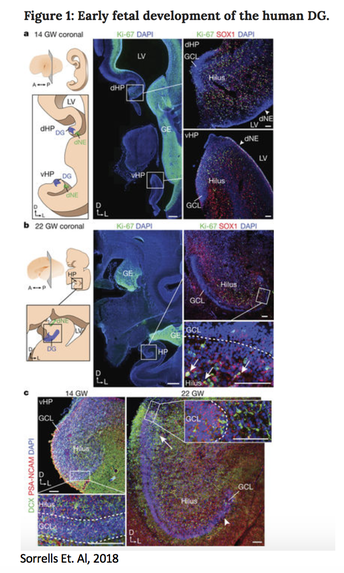|
by Olivia Woodford-Berry, '19 The blurry lines between our conceptions of the human mind and the biological systems within the brain appeal to a range of intellectuals, from neurobiologists to physicians to philosophers, yet it is difficult to piece together our conceptions of the mind and the ways that may biological systems work together in the human brain. Over recent decades, progress in biological imaging and research methods have fundamentally improved our understanding of the brain. However, neurological research still has a way to go before scientists reach any sort of consensus on the workings of the human mind.  For centuries, the scientific community believed that neurogenesis, or the development of new brain cells, stopped shortly after birth. However, throughout the 2000s, some research has suggested that the renewal of neurons continues in adult humans. This topic remains uncertain, and it has inspired crucial dedication and constructive criticism within the scientific community. In the last month, two papers, both published in prestigious journals, have made opposite conclusions about whether or not neurogenesis continues in adults and how the role of continued neurogenesis may play a role in what differentiates humans from other animals. One study from the University of California, San Francisco, published in Nature, found that the number of neural progenitors and young neurons in the hippocampus, which is a part of the brain thought to play a role in adult neurogenesis, decline after the first year of life. This group’s findings suggest there is little to no neuron regeneration in adult brains. Furthermore, their findings lead one to question how the function of this part of the brain differs in humans compared to other species. In contrast, three weeks later, a group from Columbia published a study with vastly different conclusions. After autopsying the part of the brain examined in the previous study, they claimed that healthy adults exhibit preserved brain development, though it is perhaps lessened with age. They further concluded that this continued neurogenesis might sustain certain human-specific cognitive functions that differentiate humans from other primates. While such blatant contradictions among well-respected researchers certainly inspire uncertainty in the field, it also exhibits the beauty of science and the elegance of peer-reviewed research. Even with the best minds tackling an idea from various angles with different approaches, thorough science is often messy and sometimes draws different conclusions from data. Still, this knowledge pushes both groups as they tackle these conflicts head on. In analyzing the a lack of reproducibility, one may find a need for better methodology or choose to consider more factors to get a holistic picture. Research is not meant to be about scientists patting each other on the back, and disagreements inspire the level of critical thinking and experimental rigor necessary to eventually find the fundamental truth of our brains, and of the biological world more broadly.
0 Comments
Leave a Reply. |
